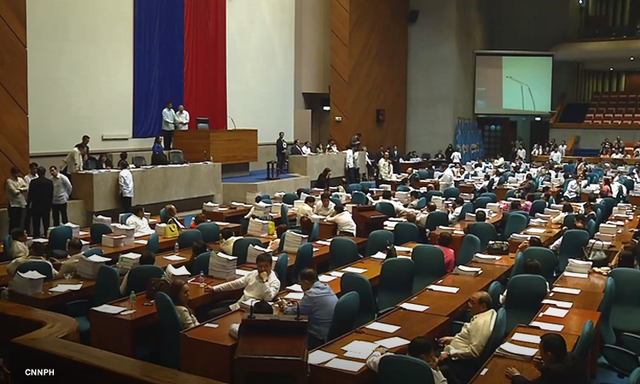
THE House of Representatives has endorsed for Senate approval the proposed Capital Market Development Act, which seeks to establish a new private retirement and pension system.
Voting, 242 affirmative, 6 negative and 2 abstentions, lawmakers approved late Tuesday the House Bill 9343 to stimulate the development of the capital market so it can contribute significantly to the country’s economic growth.
The bill creates a Capital Market Development Council composed of institutional members from the public and private sectors whose main function is to promote and develop the Philippine capital market by formulating a five-year capital market development plan and recommending policies and reforms to stimulate investments. It will also promote investor confidence and financial literacy and streamline critical regulatory procedures.
It also establishes a mandatory, permanent, fully funded, and portable Employee Pension and Retirement Income (“EPRI”) Account for each employee at the start of employment, to which said employee (“EPRI owner”) and his employer is obliged to contribute in an amount that is fair, equitable, affordable, adequate and sustainable.
Under the bill, employers will pay 4 percent of worker salary and the worker, 1 percent of their salary to the pension plan. Micro, small, and medium enterprises (MSMEs) will only pay 2 percent of worker salary, while very small businesses with fewer than three workers will be exempt.
The bill mandates compulsory coverage for all employees and employers under the EPRI, except employees of the national government and its political subdivisions including government-owned and -controlled corporations, domestic workers, self-employed, professionals, employees of a microenterprise with less than 3 years in employ, and those specifically excluded under the implementing rules.
Employees who are not covered may opt for voluntary coverage, in which case the EPRI contributions shall be borne and paid solely by them.
The bill also grants employees a one-time option to stay within the coverage of Republic Act No. 7641 or under an existing retirement pension plan within one year from the effectivity of this Act.
Failure to exercise this option shall automatically subject the employee under the coverage of this proposal.
The employer of an employee who opts to be covered is mandated to transfer to the EPRI Account all contributions made, including all fruits and income accrued at the time of transfer. Any existing account under the Personal Equity Retirement Act (PERA) may be converted to an EPRI Account.
Also, the bill provides that the contributions, income, and benefits made or received under the proposal shall be granted the tax exemptions and privileges.
House Committee on Banks and Financial Intermediaries Chairman Junie Cua, principal author of the bill, said he filed the bill to provide for retirement and pension system that is fully-funded, portable, more actuarially fair and stable that will enhance the current pension, at the same time, promoting and encouraging national savings and prudential investments on the part of employees.
He added he also filed the bill as the current private pension system has not developed.
Read full article on BusinessMirror


